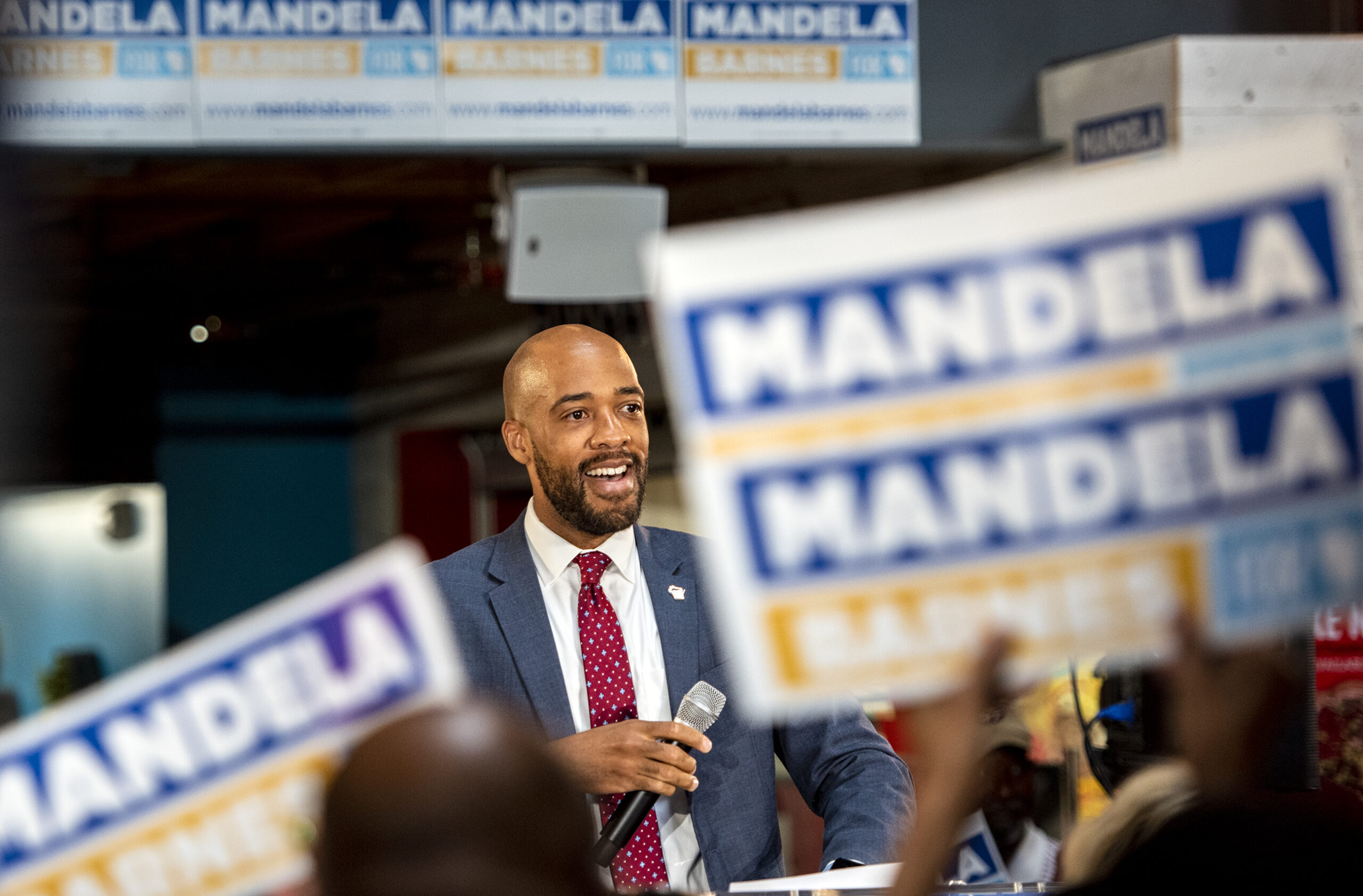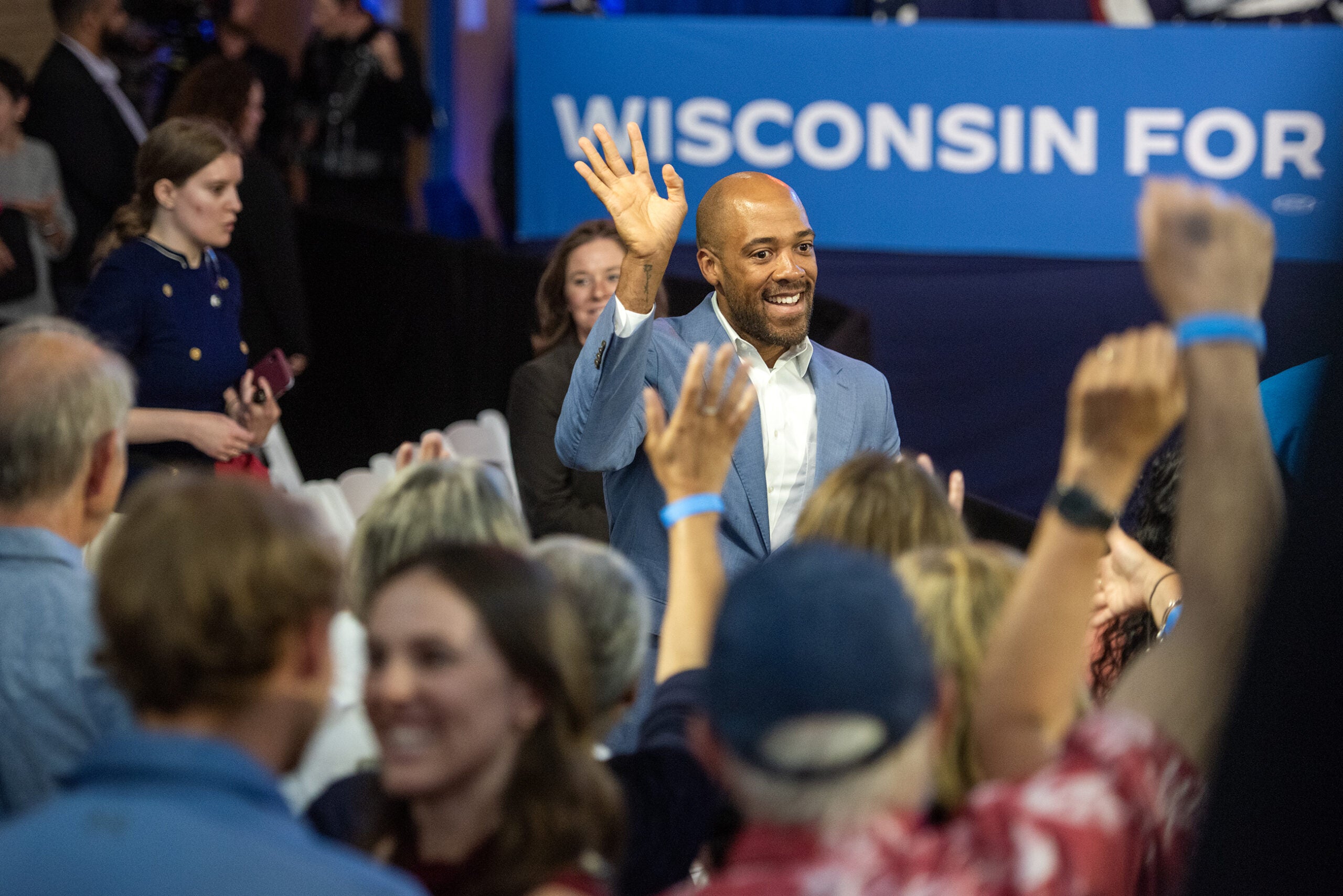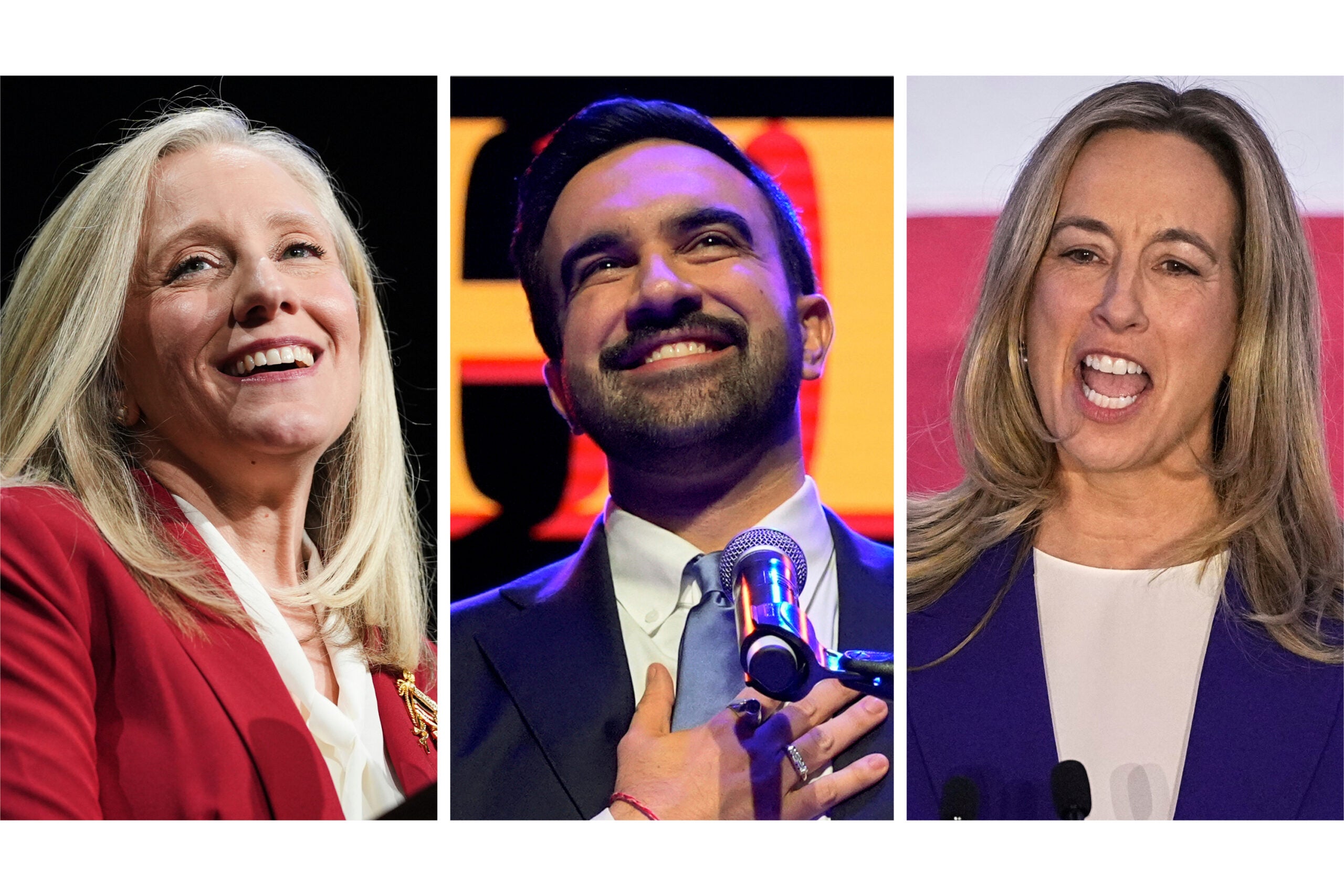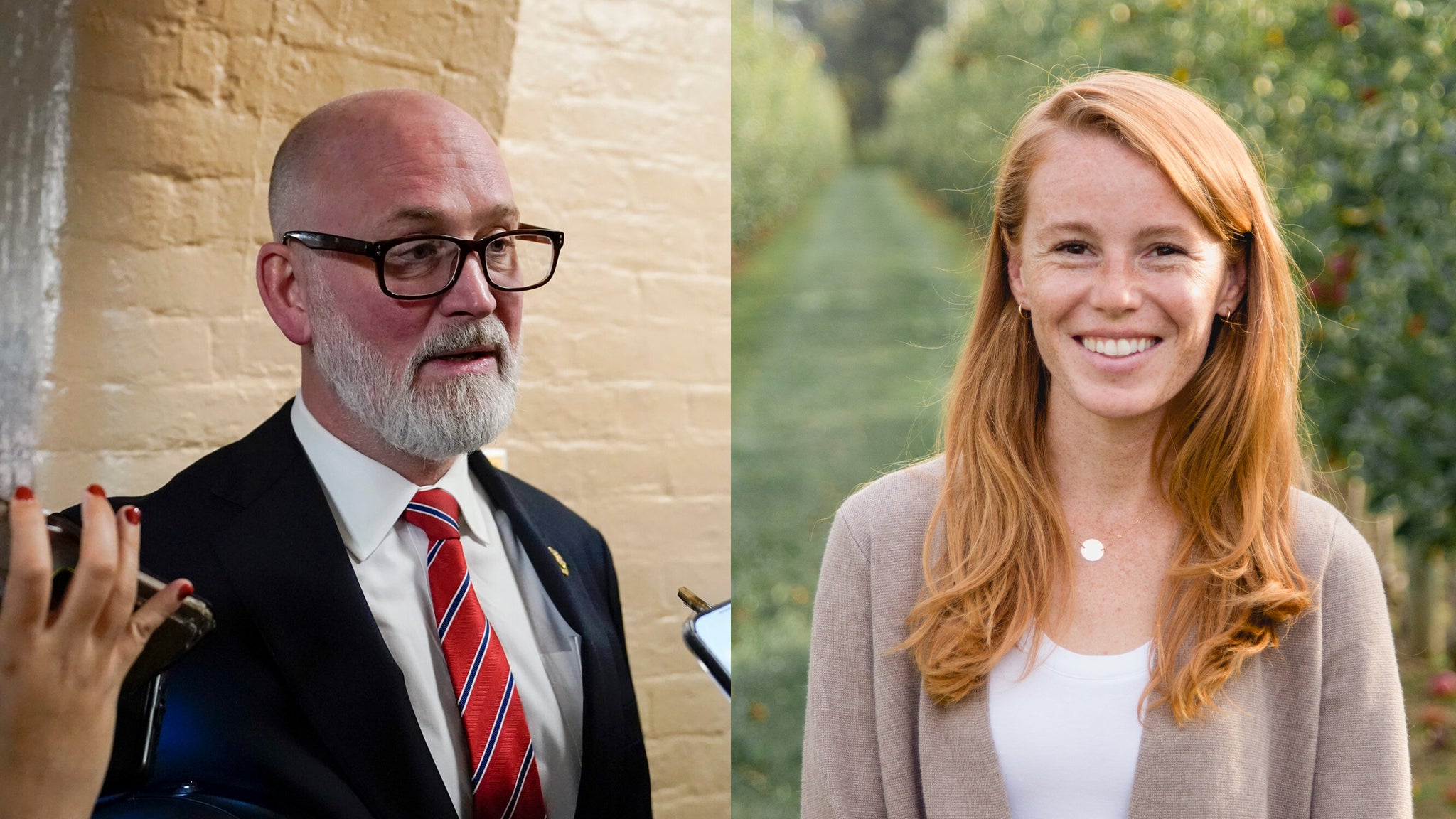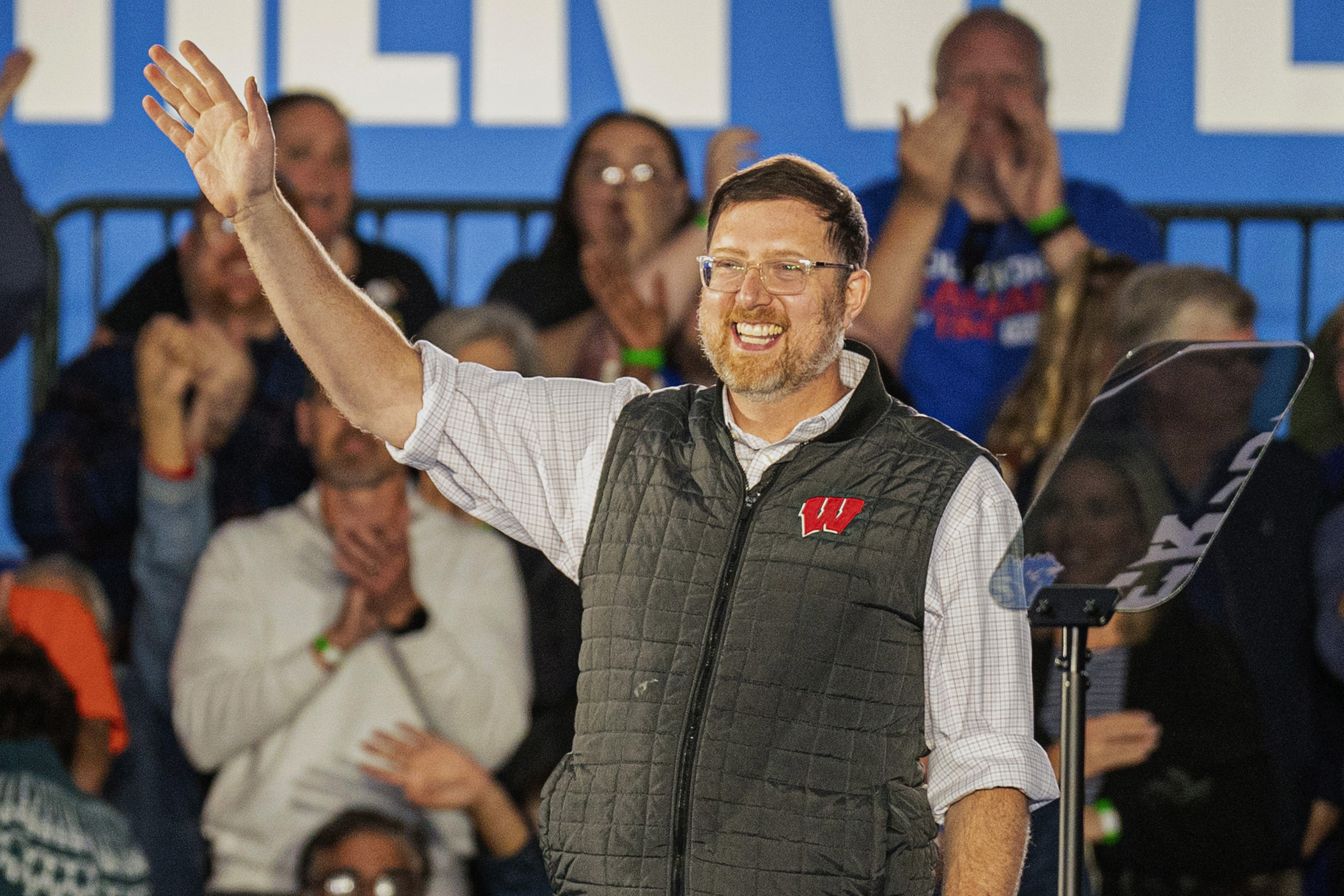Lt. Gov. Mandela Barnes pulled in the most money from donors in a crowded field of Democrats vying for U.S. Senate in 2022, according to federal campaign finance reports filed late last week. Meanwhile, Republican U.S. Sen. Ron Johnson posted strong fundraising as well, despite not having an official reelection campaign.
The Senate race is one of the most closely-watched in the country, with Democrats hoping to hold on to or increase their razor-thin majority in the chamber. The Cook Political Report lists the race as one of three across the country with “toss up” status, rather than being inclined toward one party or another.
According to Barnes’ campaign finance report, the first since he launched his campaign in July, the lieutenant governor raised $1.1 million between July 1 and Sept. 30. Roughly $1 million came from individual contributions — the most of any Democratic candidate in the field.
News with a little more humanity
WPR’s “Wisconsin Today” newsletter keeps you connected to the state you love without feeling overwhelmed. No paywall. No agenda. No corporate filter.
State Treasurer Sarah Godlewski and Milwaukee Bucks executive Alex Lasry also posted fundraising totals over $1 million for the fundraising period, but each personally loaned or donated large sums to their own campaign. Godlewski loaned or donated $1 million to her campaign. Lasry loaned $750,000.
Anthony Chergosky, professor of political science at the University of Wisconsin-La Crosse, said the numbers show Barnes is the clear front runner in the Democratic primary race.
“He’s generating the type of grassroots and small-dollar support that you really do need to win an extraordinarily expensive race,” he said.
Chergosky said Godlewski and Lasry could catch up to Barnes over the next several months, but argued they have a lot of ground to cover. He likened the personal campaign loans and donations to a “sugar high.”
“It buys them some time to build up their campaign and try to develop an alternative to Barnes,” he said. “It can make a difference in the short term, but it’s not a long-term fix.”
In all, 11 Democratic candidates filed campaign fundraising reports for the quarter, though one candidate, state Sen. Chris Larson, has suspended his campaign since the fundraising period began.
Of the remaining candidates, Outagamie County Executive Tom Nelson led the field, raising about $223,000. Millennial Action Project founder Steven Olikara raised about $102,000 and Wausau physician Gillian Battino raised roughly $89,000. The rest of the candidates, which include Milwaukee alder Chantia Lewis and state emergency management administrator Darrell Williams, raised less than $20,000 each.
The partisan primary for the race will be held next August.
For Johnson’s part, the GOP incumbent raised about $906,000, despite not having an official reelection campaign. Johnson said this summer he had “plenty of time” to announce his plans.
Chergosky said Johnson could fund a solid campaign with that kind of fundraising haul.
“Ron Johnson is keeping his options open,” he said. “He’s raising enough money and bringing enough money in where he could run a credible campaign.”
Chergosky pointed out its often less expensive for incumbents to run successful campaigns, because they don’t have to invest in ads or other measures to build their own identity and name recognition with voters, as well as attack challengers in the race.
For his last campaign in 2016, Johnson announced his candidacy roughly six months before Election Day. During that campaign and at his 2016 election night rally, Johnson pledged not to serve more than two terms in the U.S. Senate.
Chergosky said incumbent U.S. Rep. Mike Gallagher’s strong fundraising numbers for the quarter could indicate he is considering a Republican bid for the senate seat, if Johnson decides not to run. Gallagher reported raising about $500,000 in the quarter.
“He’s pretty obviously raising the kind of money to launch a Senate campaign if Ron Johnson drops out,” he said.
3rd Congressional District race still in early stages
The other closely watched race in Wisconsin in 2022 is the election for the state’s most competitive Congressional district, western Wisconsin’s 3rd Congressional District.
U.S. Rep. Ron Kind, a Democrat, announced in August he will not seek reelection next year for the seat he’s held for more than 25 years.
Since then, state Sen. Brad Pfaff, Eau Claire business owner Rebecca Cooke and U.S. Navy veteran Brett Knudsen have announced Democratic bids for the seat.
Republican Derrick Van Orden, a retired Navy SEAL, announced his campaign to represent the district in April. Van Orden, who was endorsed by Trump, narrowly lost to Kind in 2020.
Pfaff, Cooke and Knudson had not filed reports with the FEC as of Monday afternoon. Van Orden reported raising about $1 million.
The partisan primary for the Congressional seat will also be held next August.
Wisconsin Public Radio, © Copyright 2025, Board of Regents of the University of Wisconsin System and Wisconsin Educational Communications Board.

